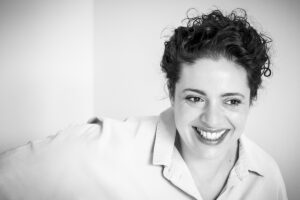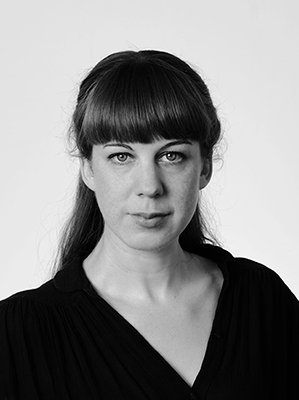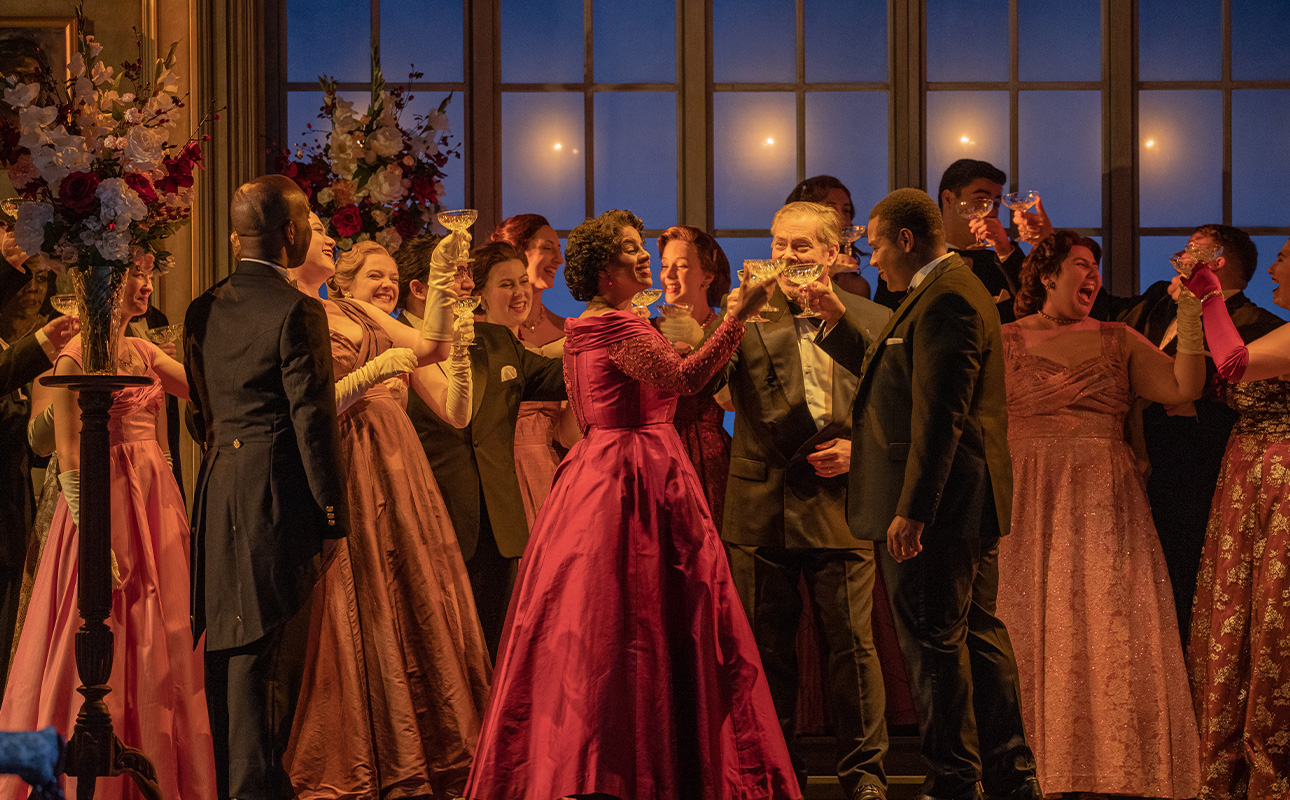Forty-five years after its triumphant production at Spoleto Festival USA in 1978, Samuel Barber’s Vanessa returns to Charleston. (Twenty years prior, its premiere in New York won Barber a Pulitzer Prize in 1958.)
There is a strong Spoleto connection: Barber’s partner Gian Carlo Menotti—Spoleto’s founder—wrote the libretto and directed the first Spoleto production. Barber attended that festival, and died, merely three years afterward in 1981.
This season’s Spoleto production of Vanessa marries new sets and costumes with Barber’s classic score and Menotti’s dramatic libretto. A renowned creative team—director Rodula Gaitanou, set and costume designer Cordelia Chisholm, and conductor Timothy Myers—are recreating it in Charleston for Spoleto.

Rodula Gaitanou, director
“Barber and Menotti set the work in a northern European country in 1905, but it feels to me like it should be in America,” says Gaitanou, who has directed opera productions in the United Kingdom, Norway, Sweden, Denmark, Austria, Germany, Ireland, Portugal, Italy, Greece, China, Australia, and the United States.. “Barber had in a mansion in Upstate New York called Capricorn, with the Hudson River nearby, in the woods, isolated.”
“The music is quite cinematic,” Gaitanou continues. “It’s like a soundtrack reminiscent of Hitchcock films. The story seems very right in the 1950s.”
The UK-based Chisholm, who designed the sets and costumes, agrees.

Cordelia Chisholm, scenic and costume designer
“Rodula and I both listened to the piece, and then we came together and talked through different scenarios,” Chisholm said. “There is something about the piece that feels of the time that it was written—1958.”
The tangled love story
Set in a mansion surrounded by deep woods—reminiscent of Barber’s Capricorn—the opera centers around Vanessa, who had been abandoned by her lover Anatol 20 years ago. Since then, she has locked herself away from the world, staying in the mansion with her mother, the Old Baroness, and her niece, Erika. The forest seems to be encroaching on the great house the way the women’s emotions threaten to overcome them.
On a stormy evening, a young stranger arrives, who—though Vanessa had longed for him to be Anatol—revealed himself to be Anatol’s son of the same name. Shocked at this turn of events, Vanessa leaves the young people alone and they become intimate. Overtime however, Vanessa and the young Anatol get closer, leaving Erika to act drastically. She confides in her great Aunt, the Old Baroness, who isn’t much help. Menotti characterized the story as a universal human dilemma.
“It’s about the kind of choices people make that affect their future,” Gaitanou says. “Within these three women we find different aspects of the human experience. How do we all feel about love? What are our expectations? How important it is to have open conversations? It reveals our human nature.”
In Gaitanou and Chisholm’s interpretation of the story, the Old Baroness is an artist who obsessively paints portraits of Vanessa who equally obsessively covers them up to hide her aging visage.
Notes Chisholm: “In the ball scene in the second act, the paintings get uncovered as Vanessa feels more comfortable with herself and kind of relishes seeing herself everywhere.”
A house upstate—or in the Lowcountry?
While the mansion is set in New York, those familiar with Charleston’s older homes may see similarities. “The welcoming, imposing houses in Charleston give me a great deal of inspiration,” Gaitanou says. “Walking the streets of Charleston, I see this house, and it could host that story.”
“Charleston is pretty incredible,” Chisholm says. “And to mount Vanessa here, surrounded by these grand houses, feels strangely full circle. The history here feels so fresh on the surface.”
About the music
To conduct this work, Spoleto tapped Timothy Myers, the Principal Conductor & Artistic Advisor at Austin Opera, who is fresh off conducting Austin Opera’s production of Bizet’s The Pearl Fishers.

Timothy Myers, conductor
Myers and Gaitanou are longtime artistic collaborators. “Good collaboration is not only rapport but also repartee,” notes Myers. “Rodula started out as a violinist, so she has an intimate understanding of music and the way it tells the story.”
He continues: “There’s a really close connection that she and I have, and it’s just a joy. There’s something special that happens when we work together.”
The opera features five singers and a 75-piece orchestra. “A big sound is required to express the monumental emotional qualities of the piece,” says Gaitanou. “It’s truly a gorgeously written score and an American masterpiece.”
Yet achieving a balance between the small number of singers and the large orchestra takes serious know-how, elbow grease, and passion for the work.
“Vanessa is a neo-romantic opera,” says Myers. “The sound is built from the ground up—similar to a piece by Tchaikovsky or Rachmaninoff. Sixty musicians play in the pit, and there is a large offstage banda (Italian for band). There’s a lot of offstage music—a French horn, sleigh bells, and chimes.”
Enter Assistant Conductor Aaron Breid, who directs the banda and, at times, a large offstage chorus.
“Aaron is an extraordinary assistant conductor. It’s very difficult, but the effect is incredible,” Myers said. “The challenge as a conductor is finding the highs and lows—when can the orchestra play full throttle, and when we can be fully transparent so that we can hear the singers clearly?”
The cast comprises internationally acclaimed singers Nicole Heaston as Vanessa, Zoie Reams as Erika, Edward Graves as Anatol, Rosalind Plowright as the Old Baroness, and Malcolm Mackenzie as the Old Doctor.
“The cast is fantastic. The whole team is terrific,” Gaitanou said. “The characters are grounded and well-drawn. It has you on the edge of your seat. It is really gripping. I don’t understand why it isn’t done more often.”
Written by Lynn Felder. A journalist for more than 30 years, Felder writes about arts, yoga, culture, and the people who make them. She is based in Winston-Salem, North Carolina.

